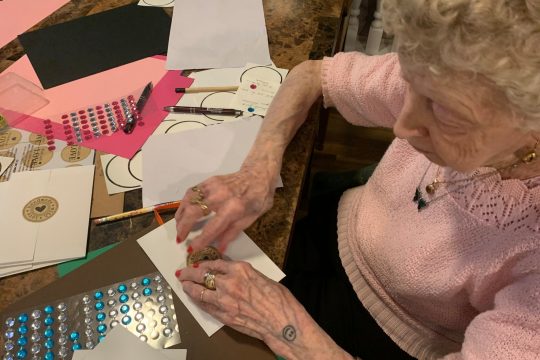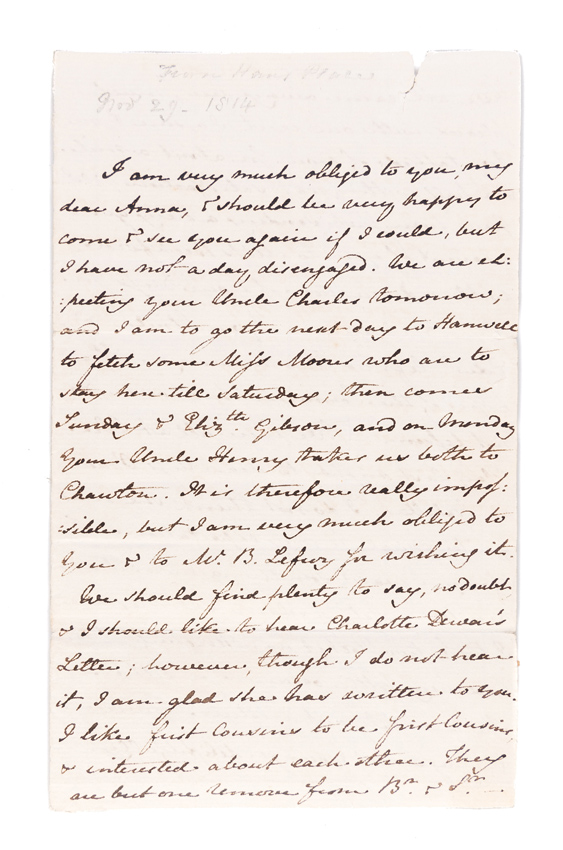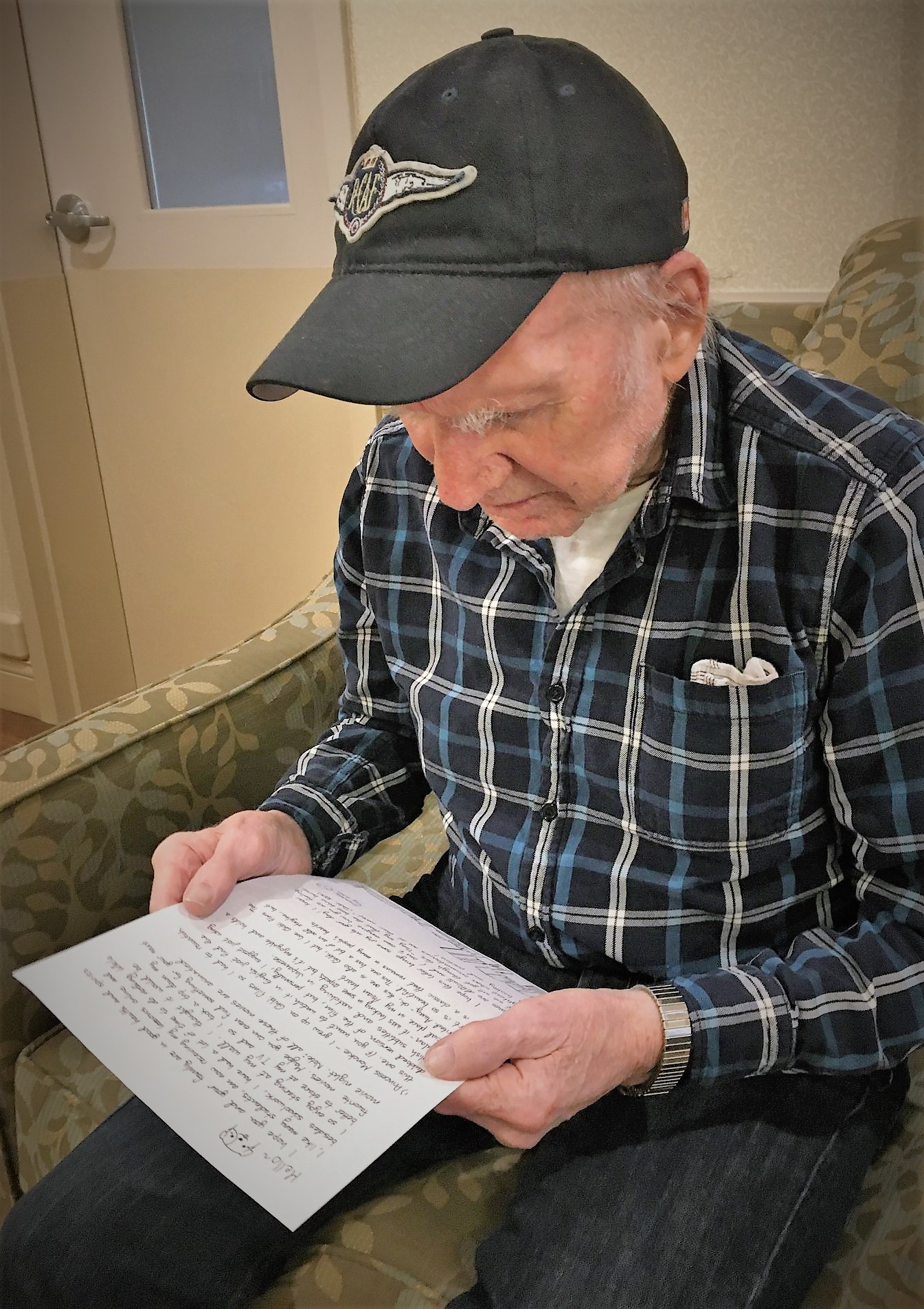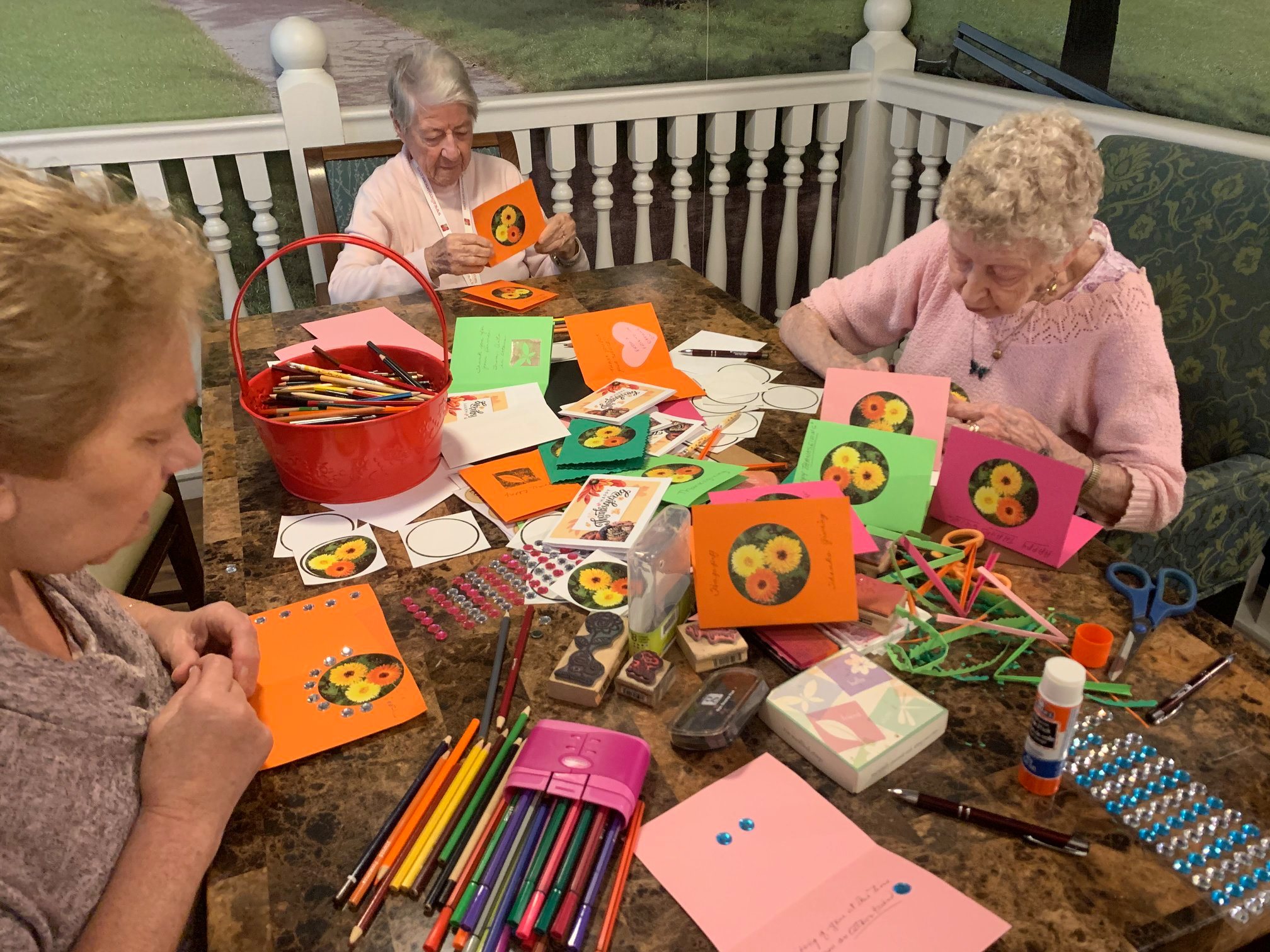
The joy of receiving a hand-written letter!
It conveys the message that someone has you in their thoughts and took the time to put pen to paper. If you’ve ever received a handwritten note from a senior, you might also notice the beauty of the script.
Handwriting animates the paper. The elegant flourishes sashay across the page; the bold flairs shout for attention. Casually scribbled letters trip over one another, while distinctive dashes direct traffic. Every message brims with the personality of the writer, an intimate dance between hand, eye, mind, pen, and paper.
And yet, penmanship is an art form that is quickly being lost.
The Lost Art of Cursive Writing

When was the last time you sat down and wrote something by hand? At one time, handwriting letters and to-do lists was a part of daily life, but now people rely on email, texts, and voice-recognition apps to communicate with others and take notes.
It might be time to step away from the keyboard and pick up pen and notepad again. Numerous studies have shown that the act of handwriting offers cognitive, creative, and social benefits that are hard to ignore.
1. Handwriting Uses Your Brain
A lot goes on in the brain when we write by hand. A recent study from the Norwegian University of Science and Technology (NTNU), published in Frontiers in Psychology, shows that cursive handwriting helps the brain learn and remember better.
Handwriting engages 14 areas of the brain, including memory recall, mental attention, visual focusing, concentration with awareness, and eye-hand coordination — skills that we need throughout our lives. Handwriting letters and notes can help keep these skills sharp as we age.
Moreover, older adults who read and write often later in life can slow their memory decline by 32 percent compared to people with average mental activity.
2. Time to Unplug
 Letters make life slow down a little bit. The time taken to write a real letter nourishes your soul.
Letters make life slow down a little bit. The time taken to write a real letter nourishes your soul.
Though we’re constantly updating our friends on every moment of our lives via social media, something special happens when we set aside the keyboard and put pen to paper. The very messiness of writing is an embodied practice of creative expression, a moment of mindfulness that wakes us up, fires the synapses, brings us to the task at hand.
The act of writing by hand reduces stress, anxiety, depression symptoms, and increases overall mental health. Research has shown that being grateful is good for your health, and expressing your gratitude through written letters, specifically, has mood-enhancing effects.
3. Writing Helps Us Sleep Better
Writing in the evening improves sleep. Replacing our screen with a pen and notebook has been found to improve the quality and duration of sleep and not only because it reduces our exposure to blue light at a critical time for our circadian rhythms.
One study found the most effective thing to write was a to-do list for the following day. It clears your head, reduces anxiety, and let’s your brain get on with what it most needs to do: rest and restore.
4. Handwriting Is Social
A friendly letter is an informal message aimed at sharing news, feelings, and thoughts with your friends in a now old-fashioned manner. Today, texting and social media have replaced personal letters. But there is no romance or warmness in short, printed messages. Writing a social letter lets the recipient know that he or she is valued and appreciated. Such letters do wonders for improving and maintaining good relationships, both business and casual.
Even though people don’t send them as much as they used to, we still enjoy opening our mailbox to find a personal note from a loved one. It creates a social connection that isn’t easily replaced by other media. That’s one of the reasons that All Seniors Care created the Cards for Care program, which encourages students and older adults to connect through a fun and engaging letter exchange program.
Cursive Writing Ideas
The evidence is clear: Handwriting letters and notes can sharpen your mind, expand your creativity, and connect you with friends, new and old.
Take time to incorporate cursive writing into your daily routine. You’ll reap both physical and psychological benefits and provide healthy ways to keep older adults connected to others.
- Write thank you notes, post cards, or compose handwritten letters to loved ones
- Write a poem
- Turn your name written in cursive into a piece of art
- Write down old family stories
- Keep a gratitude journal
- Write a to-do list
- Write a holiday letter to the military
Keeping Cursive Writing Alive
For the last 10 years, All Seniors Care has kept the art of longhand alive by writing to the troops. Seniors in residences across Canada put together gift boxes and write letters for Canadian military personnel serving overseas with Operation Proteus. These are delivered every other month, on special occasions, and at Christmas.
Similarly, the 2014 Lean on Me initiative saw residents painting walking canes and distributing them to missions and the homeless as a way to combat isolation created by mobility challenges. The canes sent to the Cockrell House for homeless veterans sparked a letter-writing and gift tradition that remains in place today.
If you would like to be a part of a senior retirement living community that values handwriting as a powerfully simple way to foster connection, explore our website. With retirement homes in Ottawa, care homes in Regina, and senior living communities in Stratford there are many options to choose from. We offer the full range of support services needed to ensure residents’ ongoing quality of life at any of our beautiful buildings.
|
“How wonderful it is to be able to write someone a letter! To feel like conveying your thoughts to a person, to sit at your desk and pick up a pen, to put your thoughts into words like this is truly marvelous.” ― Haruki Murakami |
Writer – Julianna McLeod
Julianna is a health and wellness expert at All Seniors Care. Her mission is to create content that empowers older adults to form sustainable solutions for lasting health and happiness. She is an experienced writer, editor, and Recreational Therapist living in Toronto.
